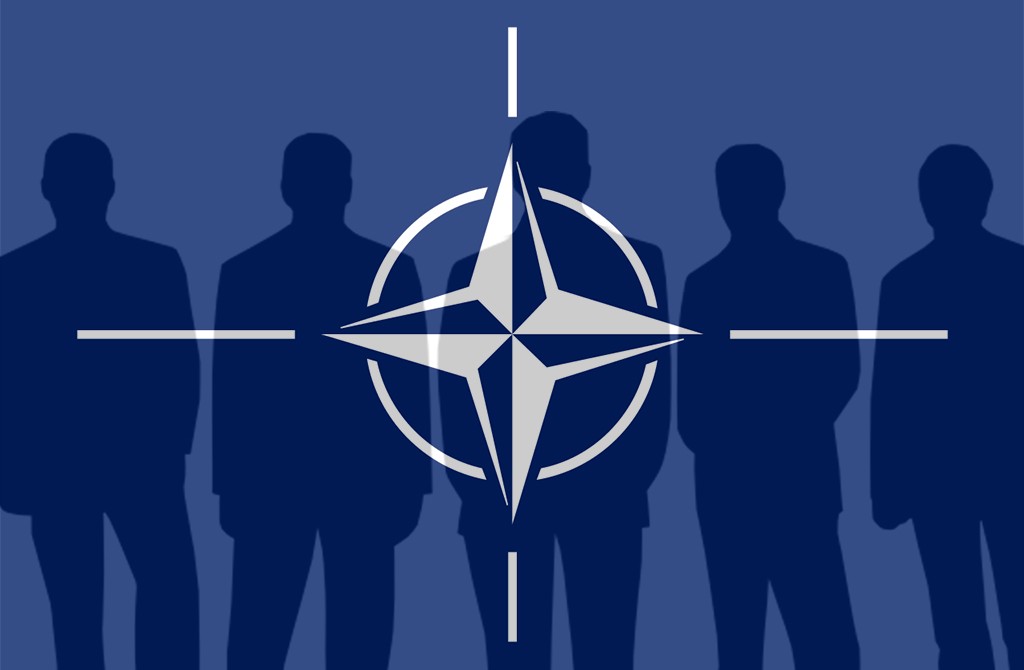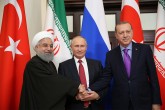A scandal that took place during drills at NATO’s Joint Warfare Center in Stavanger, Norway last week has sparked outrage in Turkey. The Turkish government and opposition parties were united in their vocal criticism of the military alliance over insults directed at Mustafa Kemal Atatürk, the founder of modern Turkey, and President Recep Tayyip Erdoğan.
Although NATO Secretary-General Jens Stoltenberg and others apologized to Turkey over the incident, President Erdoğan warned that “a simple apology was not enough” and said he thought that Turkey, not just himself, had been targeted. Clearly, it takes much more than sheer oversight for this kind of a scandal to unfold. It appears that anti-Turkey sentiments, which have been promoted by Western governments for some time, made their way into the drill. The fact that apologies made by the secretary-general of NATO, an organization that diligently goes over every little detail in each event, and the Norwegian defense minister failed to address Turkey’s concerns is closely related to the direction that Turkey-NATO relations have taken in recent years. NATO’s overall approach to the July 15 coup attempt and failure to turn over Gülenist soldiers to Turkey were detrimental to the confidence between Ankara and the alliance. Again, Turkey’s strained relationship with the United States and the European Union has an indirect influence on the country’s affairs with NATO.
In recent years, Turkish officials repeatedly pointed out that their country has been left alone in its fight against terrorist groups such as the PKK and the Gülenist Terror Group (FETÖ). Meanwhile, efforts by Turkey to strengthen its cooperation with Russia, including a decision to purchase the S-400 missile defense system, have been portrayed in the Western media as a step incompatible with the spirit of NATO. To make matters worse, certain groups in Western capitals, who accuse the Turkish president of being a dictator, have been campaigning for Turkey’s departure from NATO. Under the circumstances, the identification of Atatürk and Erdoğan as the alliance’s enemies raised questions in Turkey about the country’s NATO membership.
Skeptics argue that the organization, which, they say blatantly ignores Turkey’s national interests, has been behind all military coups and memoranda since 1960 and therefore cannot be trusted. Among the most extreme views shared in the debate is a call on the Turkish government to leave NATO, which has been “openly hostile” against Ankara.
First of all, it is important to note that “removing” Turkey from NATO is virtually impossible because there are no clauses pertaining to the forcible removal of member states in the North Atlantic Treaty. Nor does Turkey’s frequent criticism of certain NATO allies mean that the country ought to leave the alliance.
The charge of unfairness brought against the Western-centric international system by Turkish President Erdoğan, along with the questions he raises about the sincerity of his allies’ friendship with Turkey, symbolizes Ankara’s quest for a new and more just relationship. As such, the Turkish president’s remarks are intended to correct the asymmetrical nature of Turkey’s relations with the West – as opposed to ‘badmouthing’ Western countries. Needless to say, President Erdoğan does not subscribe to an essentialist view that rejects the West altogether. As such, there is an important distinction to be made between Turkey criticizing NATO to protect its interests and the country’s potential departure from the alliance.
Both the European Union and NATO are international organizations, in which Turkey seeks to maximize its national interests. To be clear, Turkey’s membership in such organizations is not an emotional question to be resolved through public campaigns. And it goes without saying that we cannot afford to take steps promoted by certain groups that would like to see Turkey shut the door on either organization.
All decisions must be based on an analysis of where the world is going and rational calculations based on long-term interests. And I do not believe that leaving NATO before the uncertainty caused by the Trump administration’s stance on transatlantic affairs is over and we know where the Permanent Structured Cooperation (PESCO) is headed. We cannot afford to commit ourselves to any one side without figuring out how the rivalry between the United States, China, Russia and Europe will play out. However worn out, multilateral organizations such as the European Union and NATO remain strategically important during this period of uncertainty.
As a country that is located at the heart of global and regional turmoil, Turkey must preserve its relations while engaging such organizations critically and to strengthen its bilateral relations with various players. Simply put, this formula means to manage a strained relationship with the West without breaking it off. For the time being, we must ensure that the anti-Turkey campaigns do not push us in the wrong direction.
[Daily Sabah, 23 November 2017]
In this article
- Genel
- Opinion
- 1960
- 2017
- Anti-Turkish Sentiment | Anti-Turkism | Turkophobia | Turkish Fear
- China
- Daily Sabah
- Donald Trump
- Europe
- European Union (EU)
- Fethullah Gülen
- Fethullah Terrorist Organization (FETÖ)
- Fight Against Terror
- Gulen Community
- Gülen Movement
- Gülenist Terror Group
- Gülenist Terror Organization
- Hizmet Movement
- Jens Stoltenberg
- Kurdistan Workers' Party Terrorist Organization (PKK)
- Mustafa Kemal Atatürk
- NATO
- NATO Membership
- NATO Secretary General
- Norway
- Opposition
- PESCO
- PKK - YPG - SDF - PYD - YPJ - SDG - HBDH - HPG - KCK - PJAK - TAK - YBŞ
- Recep Tayyip Erdoğan
- Russia
- S-400 Triumph Air Defence Missile System
- Terror
- The President of the Republic of Türkiye
- Trump Administration
- Turkish President
- Türkiye
- Türkiye-NATO Relations
- United States (US)
- Western Countries
- Western Media
- Western World



